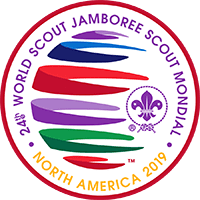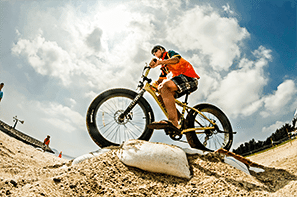
Medical Treatment
The Jamboree Medical and EMS Services consists of several types of medical services and facilities as well as a fully integrated EMS response and transport system. The medical staff has been working hard to Be Prepared for what we hope will not be needed—relief of injury and illness.
Medical support in the residential areas of the 2019 World Scout Jamboree is organized by base camp. Each Base Camp medical facility provides primary medical support for the residents of that camp.
All Base Camp Medical Facilities are open 24 hours daily during the entire jamboree. Services available at each Base Camp medical facility will include:
- Triage by a health care professional
- Treatment and discharge back to the participant’s unit
- 23-hour observation unit
- Rehydration and cooling tent
- Self-help station
- Listening Ear (a team of experienced adult volunteers who give welcome support or their “listening ear” to participants and adults who need to talk to someone)
- Transport to another medical facility for a higher level of care:
- Non-emergency patient transport van
- Emergency transport—EMS ambulance
here are Program Medical Facilities in the Summit Center and adventure areas, and medically staffed aid stations in areas where the jamboree program is delivered. These facilities are open during program hours to meet the needs of those who are injured or become ill. These will be operated similar to “acute care facilities” and will not provide the ongoing or follow-up care available at the base camp medical facilities.
Medical support in the program areas is divided into four operational zones (geographic areas).
- Centro Mondial medical facilities are located in Action Point North and in the back of AT&T Stadium. The Gateway First Aid Station is near the Scott Visitor Center and Water Reality Aid Station on the west side of the dam.
- The Adventure Valley medical facility is located at Low Gear. An aid station is located at The Rocks.
- Thrasher Mountain medical facilities are located at The Park and The Trax. Aid stations in this area are located at The Pools and The Oasis.
- Mt. Jack has aid stations located along the east and west ridgelines of the mountain and near the evening campfire area.
- The Jamboree Health Center (JHC), located in Subcamp D1, is a full-service diagnostic, treatment, and triage center with on-site X-ray services. Associated with the JHC are the orthopedic, dental, and eye clinics.
The Mental Health / Listening Ear Program takes a 3-tiered approach towards mental health issues and coordinates with the Jamboree Chaplain Service. Listening Ear Stations are located in each sub-camp (4 for Base Camps A, B, C, D, E and 2 for Base Camp F) and 3 stations in Summit Center. Included in each Base Camp medical staff are Mental Health Liaison Officers, who are licensed mental health professionals. The Mental Health Clinic provides care for serious personality disorders and psychopathology. There is also a Crisis Incident Response Team available 24-hours daily.
In summary –
There will be 6 Base Camp Medical Facilities, 5 Program Medical facilities, and 7 Aid Stations. Each medical facility will maintain a “self-help station”. The medical staff will have the facilities available on site to provide treatment for a wide range of situations. Advanced injuries and illnesses will be transported off-site to Raleigh General Hospital, the Summit’s preferred provider hospital. Both ground and air transport are available. Transport to specialty hospitals in the area is also available as needed. The medical staff throughout the Jamboree numbers over 500. It consists of licensed primary care providers as well as an assortment of specialists, nurses, paramedics and EMTs from a variety of backgrounds.
This page is also available in: EspañolFrançais
 Print This Post
Print This Post

